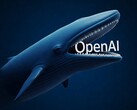While it’s hard to actually verify the alleged development costs of this new AI model, even the working hours of doctoral students should be worth quite a bit more than just $30. Be that as it may, this latest story illustrates that the recent commotions in the AI market were not caused by overreactions. That said, certain AI models for private use that don’t need much computing power have been available for some time, even before DeepSeek.
Naturally, DeepSeek has a much larger database to work with, while the researchers at the University of Berkeley put their entire focus on "reinforcement learning." Their software is not based on data that has been created by humans, as the AI is only able to verify its own solutions.
This self-verification system can generate long chains of thought, but at the same time it requires some processing time. This approach works well with simple mathematical tasks and in programming, since the verification process is rather simple in these cases.
The AI incrementally adapts its procedure in order to come up with the correct solution after the fewest possible number of steps. This AI is publicly available on GitHub, where users can find the source code and examples on how to use the model.
The developers have also granted access to all data that was utilized in this programming experiment. Since the model does not use additional data, the TinyZero AI is a very lean AI model. Nevertheless, it should perform similarly to more sophisticated models in certain tasks, such as a mathematical puzzle game.
No matter if this AI was actually developed for $30, once the foundation of certain technologies become publicly available, there will always be someone who can optimize or improve it. After all, current smartphones just need a fraction of the power of desktop PCs from the early 2000s and still perform better. With AI, this development just seems to happen a bit faster.
























